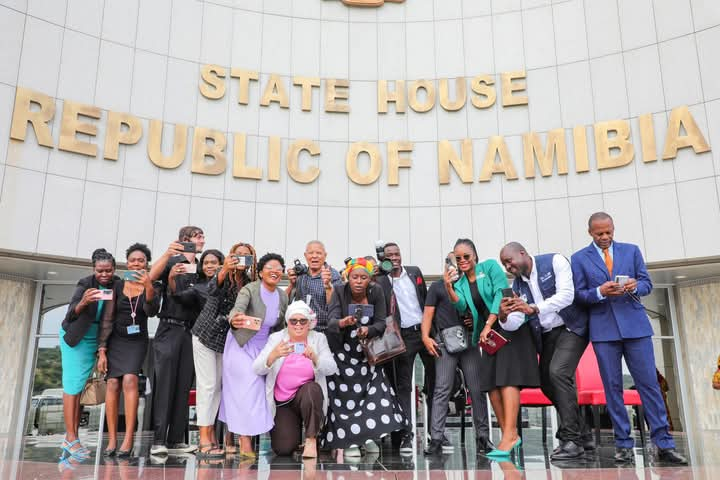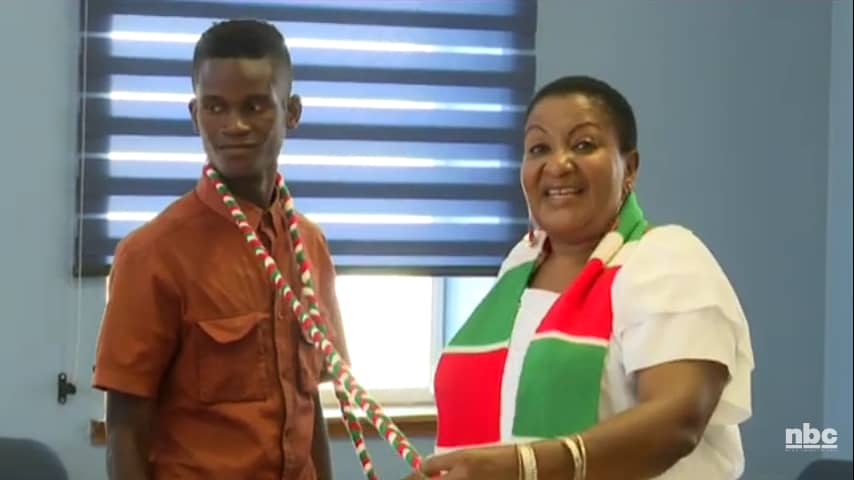GOVERNMENT is still losing millions at its border posts – not only because of corrupt customs officials, but also because the private sector offers them bribes.
Over the past year, investigations by the Ministry of Finance have revealed that the smuggling of goods is rife, particularly in the North. Yesterday, Finance Permanent Secretary Calle Schlettwein told the Parliamentary Committee on Public Accounts that in the past two years more than 14 cases had been uncovered and had led to officials being charged and dismissed.Three criminal cases involving corrupt officials and traders are still pending.”We are trying to implement a zero-tolerance policy but bribery happens at all levels.It is not only officials who are bribed.The private sector plays a big role.They are inducing it.The rewards for bribery are huge,” said Schlettwein.He told the committee that Government was not only losing through the avoidance of value added tax (VAT), but that the market also suffered because companies could outsell their competitors with much cheaper products.”It is not just the official that is gaining.The operator gains much more,” said Schlettwein.He said the Ministry always suggested the immediate dismissal of customs officials found guilty of taking bribes.Unfortunately, he said, it was not always easy to pursue a criminal case against companies that abused the system and the Receiver of Revenue could only try to recover the losses by reassessing VAT payments and having traders pay the amounts they had avoided paying.Schlettwein said although it had been done, his Ministry had no legal authority to conduct lifestyle audits on customs officials, for example by looking into their bank accounts.He said his Ministry had conducted investigations based on information revealed in this manner.”But these people are not fools.They don’t put it [the bribe money] in their own bank accounts,” said Schlettwein.Director of Customs and Excise Godfrey Kabozu said his division did conduct integrity checks on its officials and were also alerted by traders about any illegal activities they might be involved in.Schlettwein said other than cases of blatant bribery and corruption, the Ministry was not losing out on import duties and taxes voluntarily paid by importers because adequate systems were in place to avoid losses.But, he added, the system was still falling prey to dishonest traders who claim that the consignments they bring into Namibia are in transit (mostly to Angola) to avoid paying VAT and import duties.Customs officials were playing a role in allowing them to get away with it, he said.Often these consignments are taken across the border into Angola, only to return to Namibia through unmanned entry points.The Customs and Excise division currently employs 396 staff although its structure provides for 437.Schlettwein said the Ministry of Finance hoped to increase the presence of customs officials at borders, particularly at those that were not originally designated for trade.He said despite presumptions that traffic originating from Gauteng in South Africa would make extensive use of the Trans-Kalahari highway, a large volume of traffic was still entering through the Ariamsvlei and Noordoewer border posts, which did not have forklifts and sheds to thoroughly inspect consignments.He said trucks were avoiding the Trans-Kalahari route because of strict traffic monitoring and regulations, and animals on the road.Schlettwein said the Ministry was looking into obtaining multi-million-dollar scanning equipment at some of its entry points, which had become a pre-requisite for trade with the United States and Europe.This equipment is estimated to cost in the region of US$9 million.American and Chinese companies have approached Namibia with offers to provide such equipment, but Schlettwein said it was decided to procure the equipment by means of a proper tendering process.Yesterday, Finance Permanent Secretary Calle Schlettwein told the Parliamentary Committee on Public Accounts that in the past two years more than 14 cases had been uncovered and had led to officials being charged and dismissed.Three criminal cases involving corrupt officials and traders are still pending.”We are trying to implement a zero-tolerance policy but bribery happens at all levels.It is not only officials who are bribed.The private sector plays a big role.They are inducing it.The rewards for bribery are huge,” said Schlettwein.He told the committee that Government was not only losing through the avoidance of value added tax (VAT), but that the market also suffered because companies could outsell their competitors with much cheaper products.”It is not just the official that is gaining.The operator gains much more,” said Schlettwein.He said the Ministry always suggested the immediate dismissal of customs officials found guilty of taking bribes. Unfortunately, he said, it was not always easy to pursue a criminal case against companies that abused the system and the Receiver of Revenue could only try to recover the losses by reassessing VAT payments and having traders pay the amounts they had avoided paying.Schlettwein said although it had been done, his Ministry had no legal authority to conduct lifestyle audits on customs officials, for example by looking into their bank accounts.He said his Ministry had conducted investigations based on information revealed in this manner.”But these people are not fools.They don’t put it [the bribe money] in their own bank accounts,” said Schlettwein.Director of Customs and Excise Godfrey Kabozu said his division did conduct integrity checks on its officials and were also alerted by traders about any illegal activities they might be involved in.Schlettwein said other than cases of blatant bribery and corruption, the Ministry was not losing out on import duties and taxes voluntarily paid by importers because adequate systems were in place to avoid losses.But, he added, the system was still falling prey to dishonest traders who claim that the consignments they bring into Namibia are in transit (mostly to Angola) to avoid paying VAT and import duties.Customs officials were playing a role in allowing them to get away with it, he said.Often these consignments are taken across the border into Angola, only to return to Namibia through unmanned entry points.The Customs and Excise division currently employs 396 staff although its structure provides for 437.Schlettwein said the Ministry of Finance hoped to increase the presence of customs officials at borders, particularly at those that were not originally designated for trade.He said despite presumptions that traffic originating from Gauteng in South Africa would make extensive use of the Trans-Kalahari highway, a large volume of traffic was still entering through the Ariamsvlei and Noordoewer border posts, which did not have forklifts and sheds to thoroughly inspect consignments.He said trucks were avoiding the Trans-Kalahari route because of strict traffic monitoring and regulations, and animals on the road.Schlettwein said the Ministry was looking into obtaining multi-million-dollar scanning equipment at some of its entry points, which had become a pre-requisite for trade with the United States and Europe.This equipment is estimated to cost in the region of US$9 million.American and Chinese companies have approached Namibia with offers to provide such equipment, but Schlettwein said it was decided to procure the equipment by means of a proper tendering process.
Stay informed with The Namibian – your source for credible journalism. Get in-depth reporting and opinions for
only N$85 a month. Invest in journalism, invest in democracy –
Subscribe Now!










